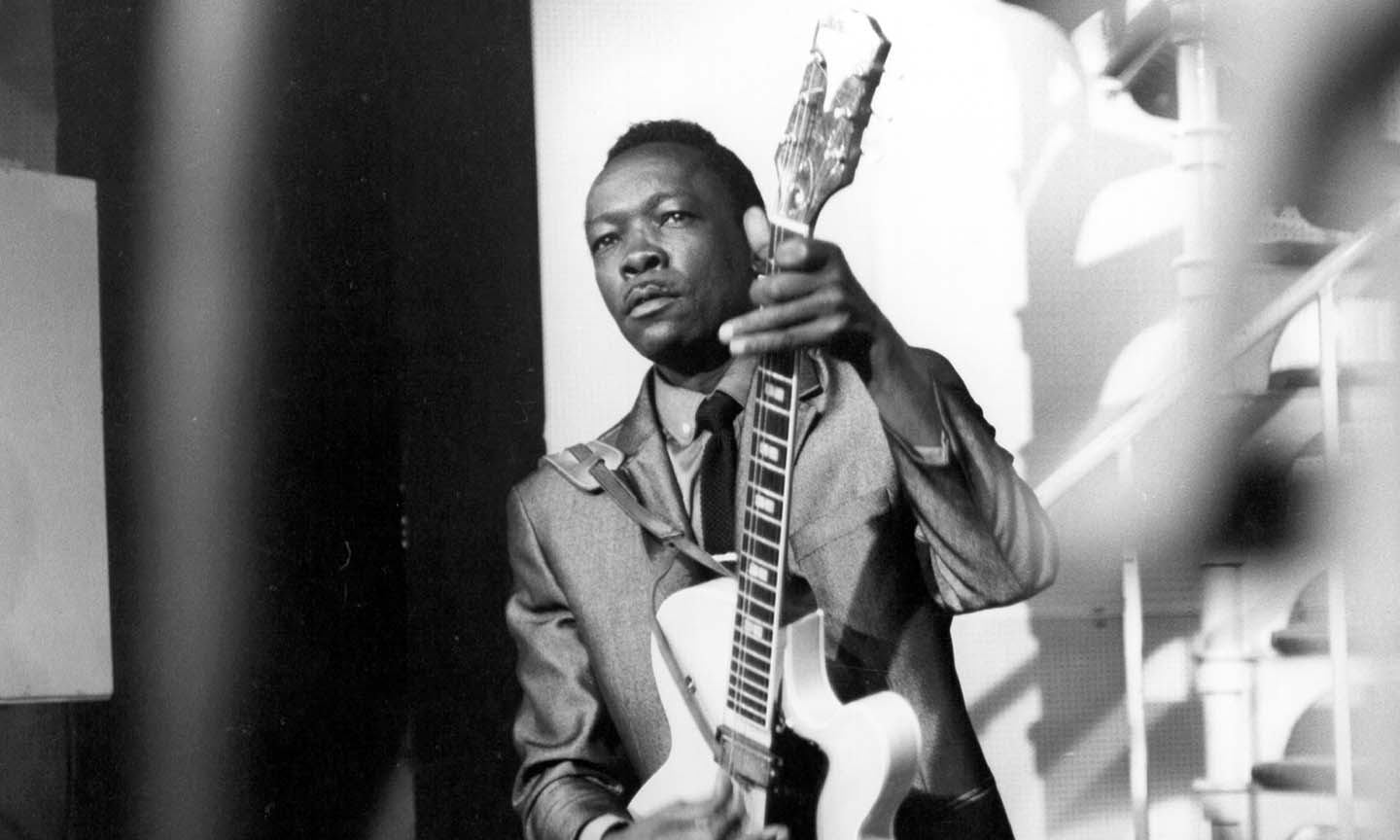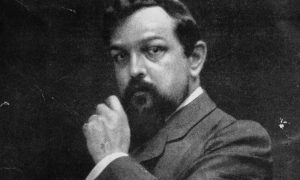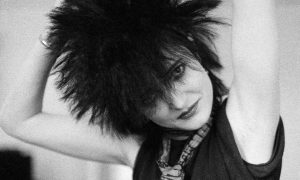The roots of the blues aren’t planted anywhere more firmly than in the tiny town of Tutwiler, Tallahatchee County, Mississippi. That’s where one of its greatest ever representatives, John Lee Hooker, was born one August 22. While the year of his birth has long been the subject of debate, the consensus places it at 1917. One hundred years later, fans worldwide saluted the centenary of a mighty presence in this original American art form.
This contribution is a retrospective of John Lee Hooker quotes. He gave countless interviews over the course of his long career in which he spoke openly about his dirt-poor upbringing, his move to the big cities and his breakthrough into recording. He also addressed the blues boom of the 1960s and the renewed latter-day success that confirmed him as a worldwide ambassador for the music he loved. As you’ll see, he was never shy about his own achievements, either. These 20 John Lee Hooker quotes describe his life in his own words.
“I grew up in the 20s on a cotton farm. My dad had all this land, with horses and cows. But that wasn’t my life…I was gonna do this, play the blues. I made the decision I was gonna run away to the city at 14, and it paid off. If I’d stayed in the South, I’d probably been a farmer my whole life” (Buzz, 1985)
On his upbringing in the poor, segregated South and subsequent social integration:
“You teach your kids, little tots, to hate and they’ll grow up hatin.’ But now it’s so far advanced, the young kids down there don’t pay no attention. I give one man the credit. [Martin Luther] King. He brought this thing but he died for it. He will always live with the people. He started this upgrade of people gettin’ along together. They killed off the Presidents, two good people I really loved, the Kennedys. So they got one more brother now and he ain’t gonna run which I don’t blame. I wouldn’t run neither” (NME, 1976)
“I went to Memphis, Cincinnati and then Detroit. I was playin’ when I was 13 or 14; my stepfather taught me how to play. What I’m playing now, he taught me. Nobody else plays this style; I got it all to myself. They tries; they get close, but…a lot of guitarists get good; they’re fantastic, beautiful, really fast, but a lot of them just sound alike. You got to tell your own story, like I tell my own. You hear one of these guys, you heard ’em all. They sound like B.B. King, or like Jimi Hendrix. They ain’t themselves. You got to sound like yourself. You may not be fantastic, or fast; but if you got a different style…nobody sound like John Lee Hooker” (Q, 1990)
“The first record I made in Detroit was for a company you would never have heard of: ‘Guess I’m Alone’ on Staff Records. That was my first little record: it was a small little company just around the community, it didn’t get anywhere but just around town, to Ohio and places like that. Then I went to another label and met Bernie Besman [who recorded him doing ‘Boogie Chillen’’ and took it to Modern Records, where it became an R&B No. 1 in 1949]” (NME, 1982)
On playing while at his job in a window frame factory:
“I used to take the guitar on the job with me and play for the guys. One day a colored fellow from a local record shop heard me, said I was tremendous, and asked would I like to make some records. Every thing I did was a hit! Muddy Waters said I was taking over from everybody! And I’ve been making records ever since” (Record Mirror, 1964)
“The blues are like a fire that spreads once it has broken out. All over the world, young people are waking up to the blues…you can’t like what you don’t know and I don’t think the blues had been heard much until the last few years. And now The Beatles, who sing a lot of blues, are the biggest thing in the business. I like them very much and they’re doing us all a lot of good popularizing the blues” (Record Mirror, 1964)
“The blues was born in America. But the American people never did give it respect. They slipped the blues under the bed, under the rug for years. But the British people, they seen what a gold mine it was and took the blues…bang, all of a sudden the blues was tearing Europe apart” (Buzz, 1985)
“You take the Rolling Stones. They useta play second on the bill behind me. I give them a lotta respect because they do a lotta my material. They love it well enough to do it, and that was puttin’ pounds of money in my pocket. I appreciate that” (NME, 1976)
“You can’t handle success if you ain’t paid some dues. Some of them get the big heads, the ego-trip — you can’t talk to ’em. If you got it the hard way, you know how you got it. You appreciate the people that put you there at the top. You look at your public. They is the one that put you where you is at. That’s why I’m always takin] time out to talk to my fans, have a little drink with them or whatever” (NME, 1976)
“I love people. I’m lonely when I’m not around people, good people, not rich people. I don’t wanna be around rich people with all their money, but people who come out to see me. They got time for me, I got time for them. People with all the money, they so sedated they don’t go out, they sittin’ like a sittin’ duck. The rich, they got ever’thing, although they got problems too, but it ain’t money problems. They got problems other ways tryin’ to hold onto what they got. They bein’ guarded like a rabbit in a cage” (NME, 1976)
“I live in California and all the time I do this when I’m home — I get out an’ I go in the little neighbourhood bars, ole raggedy shacks, sit around and drink beer. Just blue jeans, old gym shoes, just sit there with them, you know. I don’t want all that STUFF. I’d feel outa place” (NME, 1976)
“You don’t need to shout. A lotta young rock groups…they think if you don’t play as loud as you can go, it ain’t happening. It is. People out in the audience, a lotta them like rock but they don’t like it blastin.’ They want it kinda downbeat and you can hear what’s goin’ on. We play the boogie music, but we keep it down” (NME, 1976)
“I would like to become the superstar of the blues. I could play the other stuff easily, as that represents no problem to any guy that has the basics under control. And the basics is the blues” (NME, 1976)
On Al Wilson of Canned Heat, with whom he recorded the Hooker ’n’ Heat album in 1970):
“He was the man. He was the person. He could play anything, and after he dropped out that band never was the same. He knowed my music like a book. He were really outstanding” (NME, 1982)
“I’m doin’ really good. I ain’t hurtin’ for money. I got that. A lot. I done invest my money in real estate, I got about five homes in the States. I could retire and never do it no more, but I love it too much. This is my life, y’know…things I like to do when I ain’t workin’: I love baseball, that’s my hobby, an’ cars is my hobby. I love drivin’ new cars, I just got me the new Mercedes” (NME, 1982)
“If I never played another lick on the guitar, if I never played no more, I could retire established. ’Cause I know I inspired a lot of people with my playin,’ especially the European people” (Buzz, 1985)
Listen to the Blues For Beginners playlist for more from the King Of The Boogie, plus other blues legends including Howlin’ Wolf and Muddy Waters.
“I know it won’t be too long before I retire from this, I mean regular, you know? I’ll go out once in awhile. But as the years go by, touring takes its toll on anybody. I been at it so long. My heart’s there, but my flesh is weak. Right now, I don’t feel no pain. I feel good. So I don’t know when the day’s gonna come when I retire. When I get to the place where I don’t have the desire no more, that’s when I’ll know it’s time to lay down” (Buzz, 1985)
On the success of 1989’s The Healer:
“‘I’m In The Mood For Love,’ I sold a million of that; ‘Boom Boom’ – same thing, and ‘Boogie Chillen.” I had three. I am no stranger at all to hit records. I’m very proud of this album, but I ain’t carried away like I never had nothin’ before. I’m just real laid back, y’know. I’m always laid back whatever happen. I’ve found that’s the best way to do it.”
“You can’t go no deeper than me and my guitar. I open my mouth, and it’s there. I get so deep the teardrops come into my eyes. That’s why I wear my dark glasses – so you won’t see the teardrops” (Boston Phoenix, 1998)
Buy or stream the career-spanning 5CD King Of The Boogie box set.




